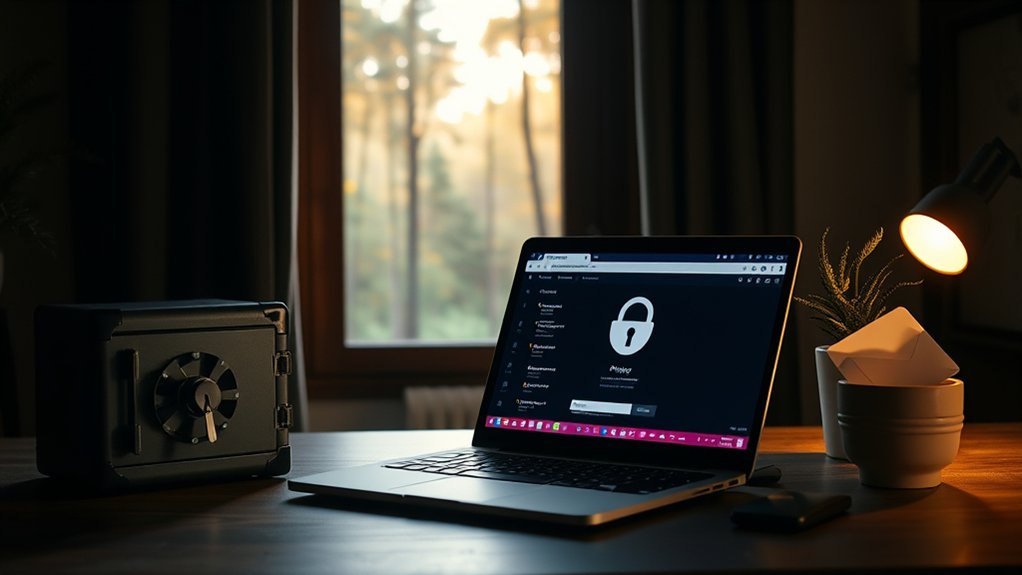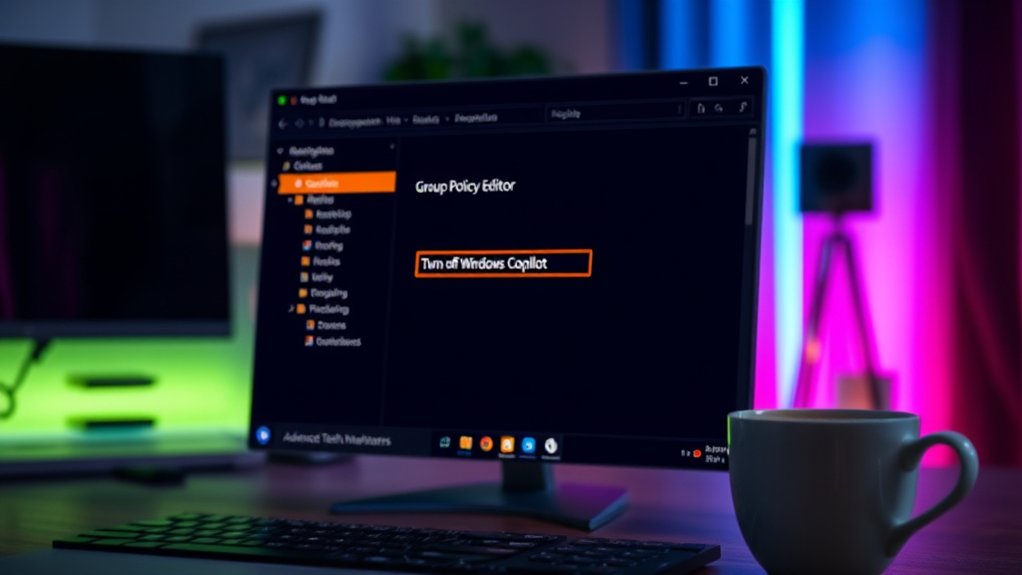To safeguard personal privacy by moving away from Google, users should consider alternative browsers like Firefox or DuckDuckGo. Implementing strong data encryption techniques, such as end-to-end encryption provided by tools like ProtonMail, improves communication security. Employing strong authentication methods, including multi-factor authentication, reduces unauthorized access risks. Furthermore, utilizing data management strategies, like configuring privacy settings through platforms like Google’s My Account, empowers users. Such extensive measures contribute to a more secure digital presence. Further insights will follow.

In an era increasingly defined by digital interaction, safeguarding personal privacy has never been more critical. As data breaches and cyber threats become common, individuals must take proactive steps to protect their information, especially when considering alternatives to relying solely on major tech companies like Google.
One significant approach involves utilizing privacy-focused tools. For instance, shifting to alternative browsers such as Firefox or DuckDuckGo offers a more private browsing experience, which minimizes data collection compared to more conventional browsers. Additionally, the importance of conducting regular audits cannot be overstated, as it helps identify vulnerabilities and enhances security posture. This is particularly relevant because Google primarily functions as an advertising business, and users should be aware of how their data is utilized. Furthermore, opting for services like ProtonMail, which features end-to-end encryption, can significantly enhance your privacy during communications.
Shifting to privacy-focused browsers like Firefox or DuckDuckGo significantly reduces data collection compared to conventional options.
Data encryption remains a cornerstone of privacy protection. By employing strong encryption techniques, users can guarantee that their data is kept confidential during transmission and storage. Furthermore, utilizing secure authentication methods, such as Single Sign-On (SSO) with multi-factor authentication, bolsters security frameworks against unauthorized access. These measures not only protect sensitive information but also improve user experience by simplifying login processes.
Beyond these measures, data management tools, such as Google’s My Account platform, provide accessible features for users to manage their privacy settings. Users can customize controls regarding their data usage, and automated alerts can notify them of any suspicious activity. These proactive measures are crucial to staying informed and protected.
For those looking to further distance themselves from Google, privacy-centric tools like ProtonMail for emails and Tresorit for cloud storage offer more secure alternatives. With privacy-enhancing computation techniques, users can engage in data analytics without risking their personal information.
In addition, implementing data loss prevention strategies can monitor and restrict access to sensitive data, securing compliance with regulations such as GDPR.
Finally, adopting a no-trust networking model improves security further in business environments, limiting access solely to those who absolutely require it. In this complex digital setting, increased awareness and strategic actions toward privacy serve as vital steps for individuals seeking to safeguard their personal data amidst constantly changing threats.
Frequently Asked Questions
What Are the Best Alternative Search Engines to Google?
Numerous alternative search engines provide options for users seeking diversity beyond Google.
Remarkably, DuckDuckGo stresses privacy with 3 billion monthly queries and no data tracking.
Ecosia, generating funds for reforestation, boasts an eco-friendly model. In a comparable manner, Brave Search and Qwant prioritize user anonymity as they offer reliable results.
At the same time, regional players like Yandex in Russia and Naver in South Korea command significant market shares, underscoring a global preference for varied search experiences.
Can I Still Use Google Services While Safeguarding My Privacy?
Utilizing Google services during preserving privacy remains feasible, albeit challenging.
Users can adjust privacy settings like Activity Controls, ensuring minimal data collection. Features such as Data Auto-Deletion allow the automatic erasure of data after specified periods.
According to privacy expert Dr. Emily Chen, “Regular audits of permissions and conscious usage can greatly mitigate risks.”
Employing these strategies facilitates continued access to Google functionalities without extensive privacy compromises, albeit complete confidentiality is difficult to achieve.
How Do I Delete My Google Account Permanently?
To delete a Google account permanently, users must first back up important data and set up alternative accounts.
Accessing the Google Account settings is crucial, as individuals need to navigate to the “Data & Personalization” section.
Authentication via password is required before verifying the deletion.
Post-deletion, all associated services such as Gmail and YouTube become inaccessible.
Users have a 20-day recovery window to restore the account, contingent upon prompt action.
What Browser Settings Enhance Privacy When Using Google?
Browser settings play a critical role in enhancing user privacy when utilizing Google. By adjusting protections to “Standard” instead of “Enhanced,” users can limit data sharing.
Blocking third-party cookies further minimizes tracking, and using Incognito mode restricts access to browsing history.
Furthermore, managing permissions for location, camera, and microphone use lessens exposure.
These measures collectively contribute to a more secure browsing environment, mitigating some of the inherent privacy risks associated with mainstream browser use.
Is It Safe to Use VPNS for Privacy?
The safety of using Virtual Private Networks (VPNs) for privacy is complex. Meanwhile, VPNs offer encryption and IP address masking, enhancing user anonymity. However, vulnerabilities exist.
Reports indicate that 25% of users experience DNS leaks, potentially exposing data. Furthermore, some providers may log data, undermining privacy efforts.
Users should prioritize providers with no-logging policies and strong encryption protocols. Overall, although VPNs can bolster privacy, they necessitate careful selection and consistent use to minimize inherent risks.









